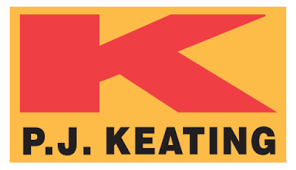News
 EPA Awards Research Grants to 16 Student Teams to Develop Innovative Solutions to Environmental Challenges
EPA Awards Research Grants to 16 Student Teams to Develop Innovative Solutions to Environmental Challenges
Jun 28, 2022
DALLAS, TEXAS - Today, the U.S. Environmental Protection Agency (EPA) awarded $399,837 in funding to 16 student teams for their research and innovative solutions to address environmental and public health challenges as part of the Agency’s People, Prosperity, and the Planet (P3) Program. This year’s awarded projects include a smartphone app to monitor household lead concentrations, a mesh material to prevent shoreline erosion, and a household heating system for Tribal communities that’s cleaner and more efficient.
“The students honored today are leading the way when it comes to developing cutting-edge research to address some of our most challenging environmental concerns,” said Chris Frey, Assistant Administrator for EPA’s Office of Research and Development. “I’m excited to support the next generation of scientists and engineers though EPA’s P3 program.”
EPA’s P3 program is a two-phase research grant program open to teams of college and university students working to design solutions for a sustainable future. The 16 Phase I recipients announced today will receive grants of up to $25,000 each which serve as their proof of concept. They will be eligible to compete for a Phase II grant of up to $100,000 to further implement their design in a real-world setting.
The following institutions are receiving funding for the 18th Annual P3 Phase I awards:
-- Ball State University, Muncie, Ind., for Removal of Microplastics from a Domestic Wastewater Treatment Plant
-- Embry-Riddle Aeronautical University, Daytona Beach, Fla., for Using Stationary and Mobile Low-cost Sensors to Assess Air Quality
-- Georgia Southern University, Statesboro, Ga., for Additively Manufactured Novel Media for the Enhancement of Biological in Situ Stormwater Remediation
-- Gonzaga University, Spokane, Wash., for Optimizing Biochar Adsorbent Production through Semi-gasification
-- Manhattan College, Bronx, N.Y., for Recycling of Asphalt Pavements Using Environmentally Benign Recycling Agents
-- Michigan State University, East Lansing, Mich., for Elimination of Microplastics and Per- and Polyfluoroalkyl Substances (PFAS) Problems Upon the Disposal of Single-use Packaging
-- Montclair State University, Montclair, N.J., for Microwave Irradiation-enabled Household On-site Regeneration of Activated Carbon for Sustainable Point-of-use Removal of PFAS in Drinking Water
-- New Jersey Institute of Technology, Newark, N.J., for Open Source, Networked Sensors for Lead Monitoring
-- Oregon State University, Corvallis, Ore., for Cleaner Cordwood Heating Technology for Tribal Communities: Needs Assessment and Preliminary Design
-- Texas State University, San Marcos, Texas, for Making Extreme-event-stable Shorelines with Hyacinth (MESH)
-- University of Alabama, Tuscaloosa, Ala., for Novel Membrane Fabrication for Improved Flux, Reduced Fouling and Efficient Treatment of PFOA
-- University of Colorado Boulder, Boulder, Colo., for Developing the Chemical Health Risk Identification System (CHRIS) for Drinking Water Sources
-- University of Missouri, Columbia, Mo., for Hybrid Filtration/AOP Membrane Process for Point-of-use PFAS Removal from Drinking Water
-- University of Wisconsin, Madison, Wis., for A Smartphone-based Colorimetric Sensor for Household Lead Detection
-- Villanova University, Villanova, Pa., for Enhancing the Anion-exchange Capacity of Biochar for Per- and Polyfluoroalkyl (PFAS) Stabilization in Contaminated Soils
-- Western Kentucky University, Bowling Green, Ky., for An Experimental Study to Develop Affordable Non-Invasive Radon Mitigation System for Single-family Dwellings
Learn more about the winners and see here for information on the P3 Program.
Connect with the Environmental Protection Agency Region 6 on Facebook, Twitter, or visit our homepage.
One-Stop Shop!









































































































